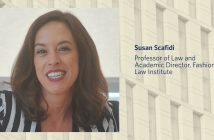An article published in The Atlantic by George T. Conway III references a Harvard Law Review article titled Faithful Execution and Article II written by three Fordham Law School professors, Andrew Kent, Ethan J. Leib, and Jed Shugerman.
Hamilton’s use of the word trust in The Federalist Papers to describe the presidency was no accident. The Framers intended that the president “be like a fiduciary, who must pursue the public interest in good faith republican fashion rather than pursuing his self-interest, and who must diligently and steadily execute Congress’s commands,” as a recent Harvard Law Review article puts it. The concept is akin to the law of private fiduciaries, which governs trustees of trusts and directors and officers of corporations, an area that has been central to my legal practice as a corporate litigator. “Indeed,” as the Harvard Law Review article explains, “one might argue that what presents to us as private fiduciary law today had some of its genesis in the law of public officeholding.” The overarching principle is that a fiduciary—say, the CEO of a corporation—when acting on behalf of a corporation, has to act in the corporation’s best interests. Likewise, a trustee of a trust must use the assets for the benefit of the beneficiary, and not himself (a fundamental rule, incidentally, that Trump apparently couldn’t adhere to with his own charitable foundation). In providing for a national chief executive, the Framers incorporated the very similar law of public officeholding into his duties in two places in the Constitution—in Article II, Section 3 (the president “shall take Care that the Laws be faithfully executed”), and in Article II, Section 1, Clause 8, which requires the president to “solemnly swear (or affirm) that I will faithfully execute the Office of President of the United States.” That language—particularly the words faithfully execute—was in 1787 “very commonly associated with the performance of public and private offices,” the Harvard Law Review article points out, and “anyone experienced in law or government” at that time would have recognized what it meant, “because it was so basic to … the law of executive officeholding.” In a nutshell, while carrying out his official duties, a president has to put the country, not himself, first; he must faithfully follow and enforce the law; and he must act with the utmost care in doing all that.




